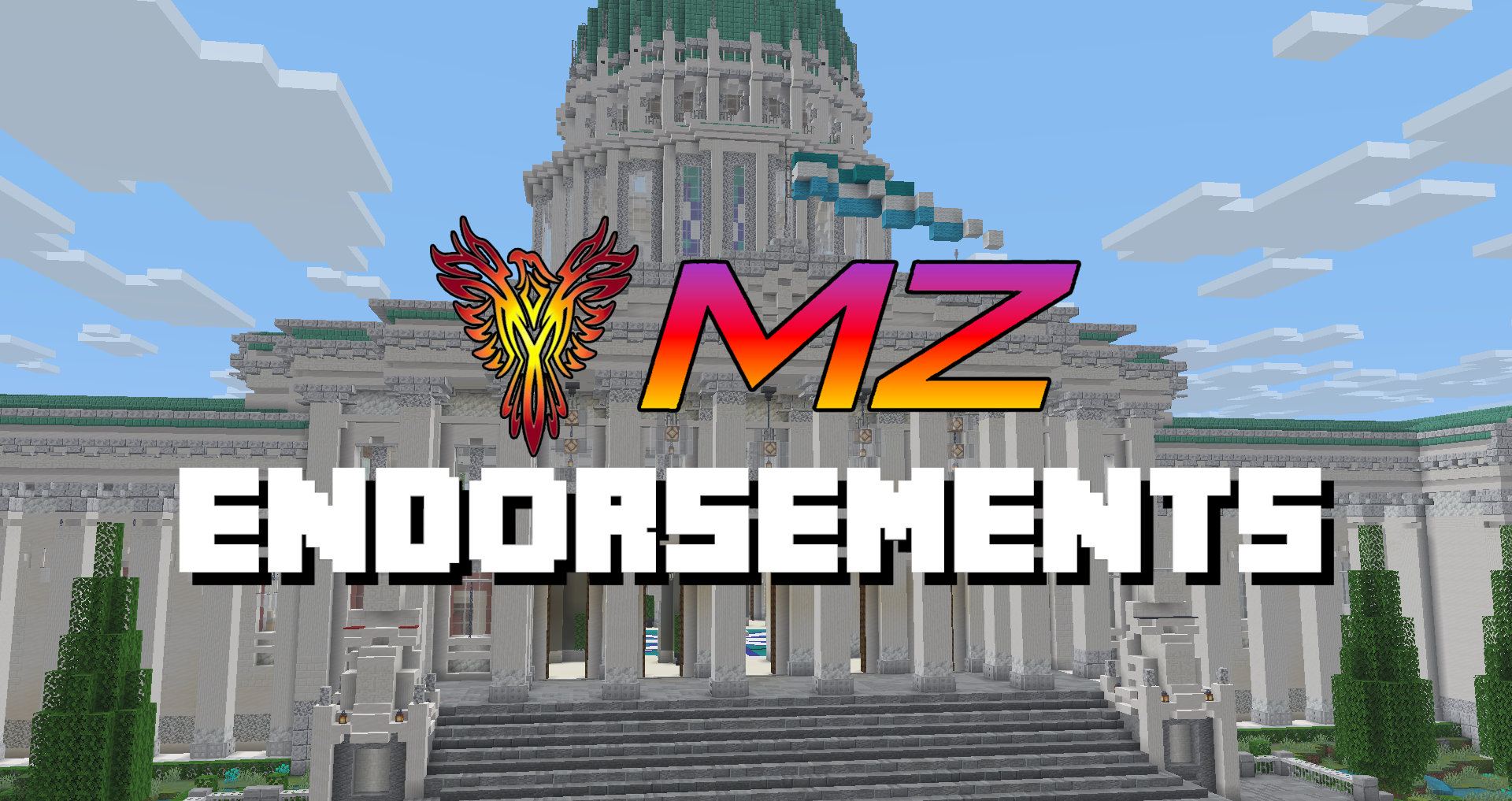In the midst of DemocracyCraft’s heated election season, Mezimori (MZ) has stepped into the political spotlight with a sweeping set of endorsements spanning multiple parties. While strongly backing the Freedom Coalition, MZ has also extended support to candidates from the Redmont Beach Party, New Alliance, The Left Opposition, and several independents.
More than a simple list of names, the endorsement comes framed as a direct response to the Workers Party of Redmont (WPR) and its affiliates, who have accused MZ of monopolistic practices and undue influence. In a document that mixes coalition-building with pointed rebuttals, MZ defends its role in the server’s economy, rejects monopoly claims, and positions itself as a champion of opportunity and fairness in the community.
Jump-Links:
- Overview
- Endorsements Breakdown
- Justification for Endorsements
- Response to Criticism
- Implications
- Conclusion
Overview
The document is MZ’s (Mezimori’s) official election endorsement, which outlines support for candidates across several parties in DemocracyCraft. The central theme is a pushback against the Workers Party of Redmont (WPR) and The Party (TP), both of which MZ claims have unfairly attacked its operations and leadership (especially Vernicia).
MZ frames its endorsements not simply as political preferences, but as a defense against what it perceives to be misrepresentation, personal bias, and toxic rhetoric from its opponents.
Endorsements Breakdown
MZ endorses candidates across multiple parties:
- Freedom Coalition (TFC): 4 candidates, including HoR and Senate representation.
- Redmont Beach Party (RBP): 7 House candidates + 1 Senator.
- New Alliance (NA): 1 House candidate.
- Independent (IND): 9 candidates across House and Senate.
- TLO: 2 House candidates.
Justification for Endorsements
MZ makes its case by:
- Arguing that its scale benefits new players by ensuring liquidity and accessibility of resources.
- Highlighting that it is not a monopoly, instead attributing success to competitive supplier rates and reinvestment in employees.
- Emphasizing community contributions: subsidized housing, artist employment, and charitable initiatives.
- Claiming that WPR’s attacks are driven by personal animosity toward Vernicia rather than genuine regulatory or ethical concerns.
The endorsements are therefore framed as both defensive (protecting MZ from regulation and “break-up” attempts) and affirmative (supporting candidates who value free enterprise and fairness).
Response to Criticism
The bulk of the document is a point-by-point rebuttal of WPR and affiliate statements:
- Monopoly accusations – Countered by pointing to diversity of products and community benefits.
- Bias against Vernicia – Labeled as personal attacks rather than policy-driven arguments.
- Inflating diamond prices – Flatly denied, described as false and inflammatory.
- Claims about harming the poor – Countered with MZ’s employment and housing initiatives.
This rhetorical structure indicates MZ is on the defensive, but attempting to turn the attacks back on the WPR by portraying them as biased, toxic, and unprofessional.
Implications
- For MZ: This positions the organization as a central economic power defending its reputation and influence in DemocracyCraft.
- For the Election: It could polarize voters further — supporters of free enterprise may be energized, while critics could see this as confirmation of MZ’s entrenched power.
- For WPR: The rebuttals highlight the risk of relying too much on personal attacks rather than policy-driven critiques, as it allows MZ to claim moral high ground.
Conclusion
MZ’s endorsement document is more than a candidate list. It’s a political manifesto defending its legitimacy within DemocracyCraft’s economy. By positioning itself as both a community benefactor and a victim of partisan attacks, MZ attempts to reframe the narrative away from monopoly accusations and toward one of fairness and opportunity.






